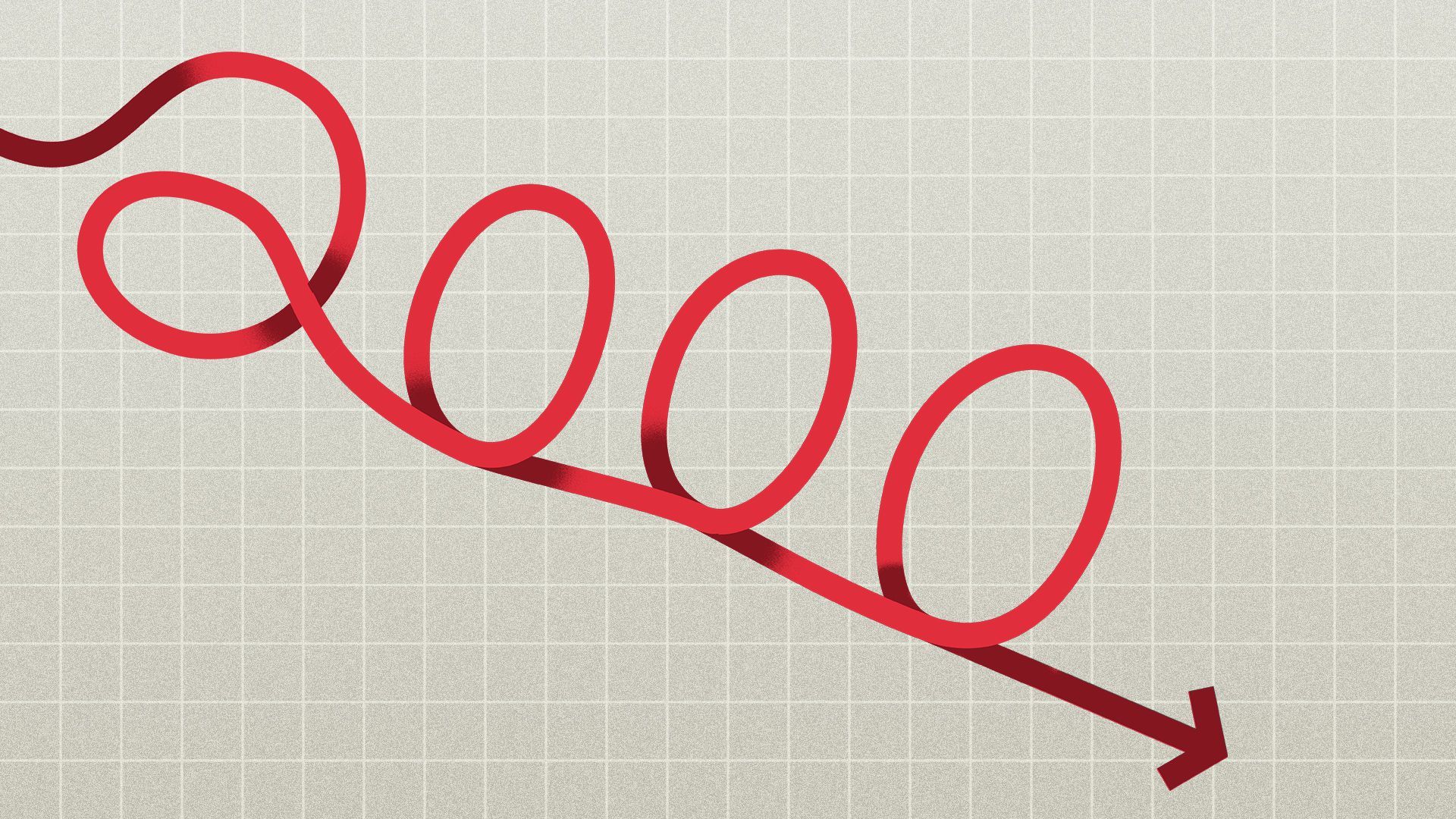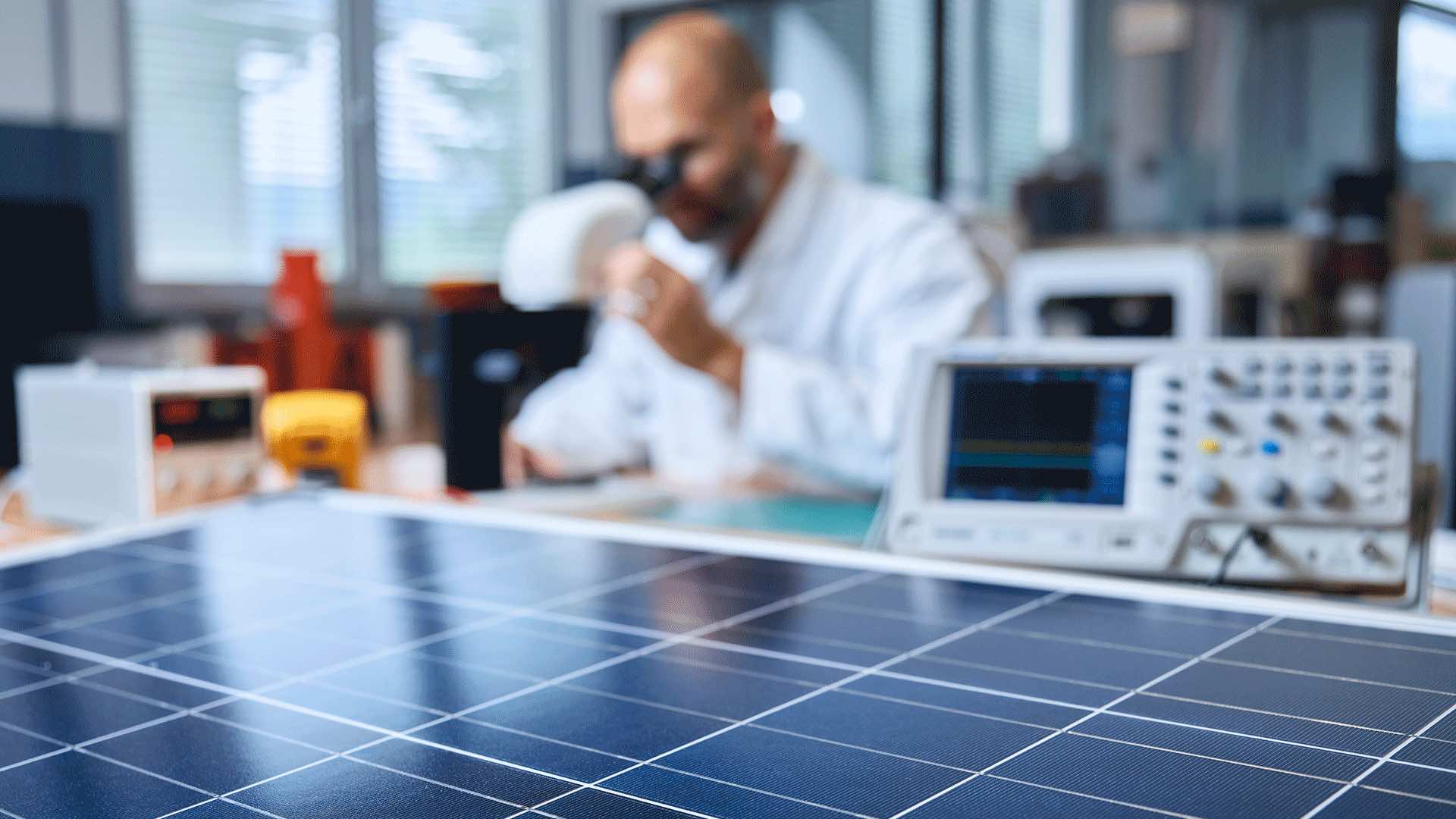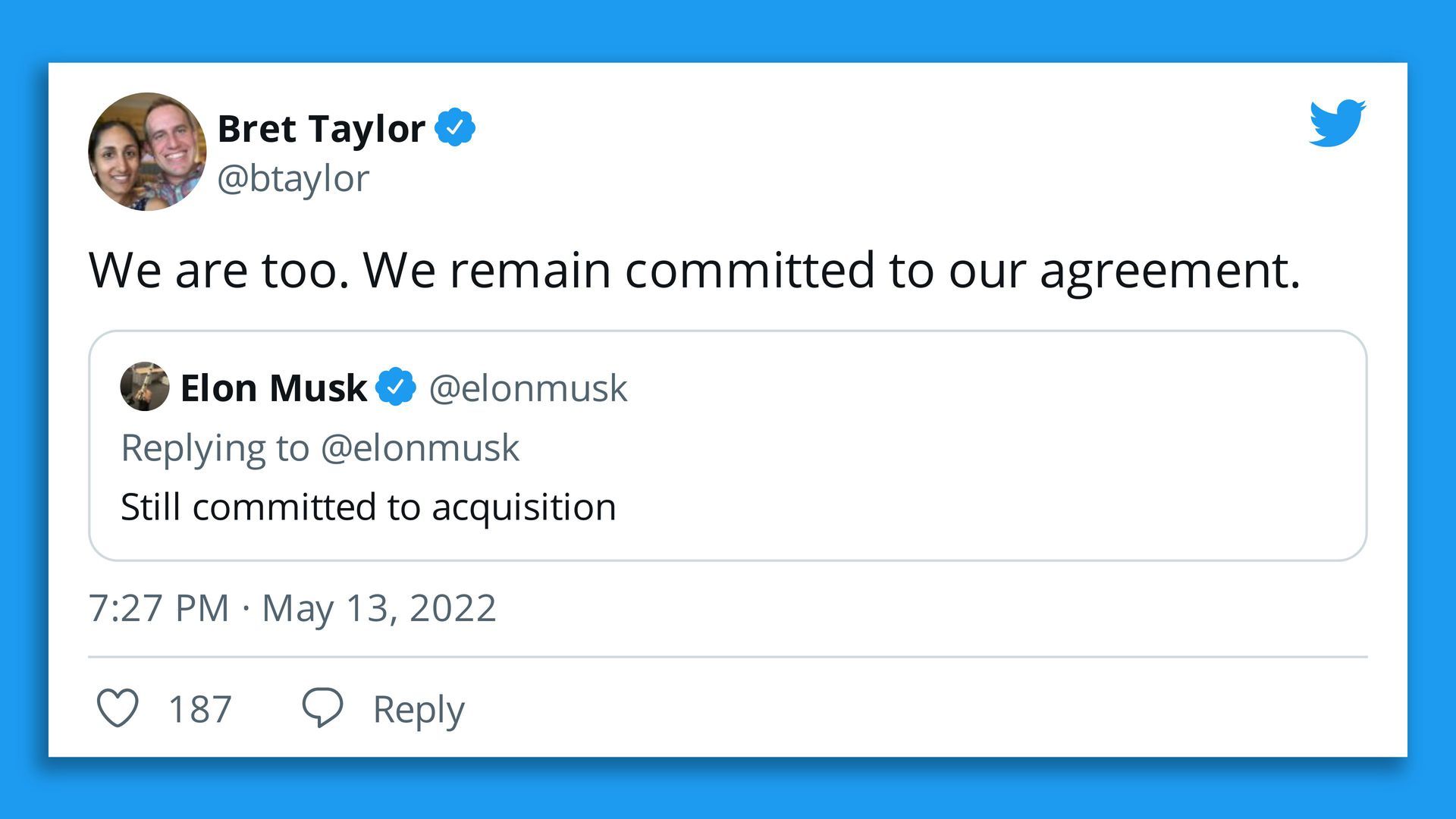| | | | | | | Presented By Calvert | | | | Axios Markets | | By Matt Phillips and Emily Peck · May 16, 2022 | | 👋 Welcome back! Today we take you back to a time when startups with flimsy business plans were everywhere, brash under-dressed CEOs grabbed magazine covers and layoffs were just getting underway. Sound .. er.. familiar? 🚨 Situational awareness: JetBlue launches hostile takeover bid of Spirit. (Axios) Today's newsletter, edited by Kate Marino, is 1,189 words, 4.5 minutes. | | | | | | 1 big thing: Deciphering the parallels to 2000 |  | | | Illustration: Brendan Lynch/Axios | | | | An exceptionally robust job market. The Federal Reserve raising interest rates at a rapid clip. Overheated financial markets starting to correct themselves, with the frothiest sectors bearing the brunt - That's the situation today — and was also the situation in the spring of 2000 when the dot-com bubble started to burst. A recession followed, but not until a year later, Axios' Neil Irwin writes.
Why it matters: The year 2000 offers essential lessons about the nature of the risks the economy is facing — and what to watch to understand just how bumpy the ride from here could be. Flashback: The stock market peaked in March 2000. But as the year progressed, the signs mounted that the good times were nearing an end for money-burning internet companies. - The layoffs started as a trickle and became a gush. IPOs were shelved, and the companies that had gone public saw their share prices dwindle.
Yes, but: The overall economy actually held up great through that year. - The number of people filing new jobless claims reached a multi-decade low in April 2000 and didn't begin rising seriously until the tail end of the year. The unemployment rate finished the year at 3.9%.
- Inflation reached its highest level in a decade of 3.8% that March and the Fed raised interest rates a half-percent in May to try to rein in inflation.
It was only in 2001 that the wheels started to come off the broader economy, as companies curtailed growth plans and layoffs became more widespread. Economists would eventually date the beginning of a recession to March 2001 — a full year after the stock market peak. - What's more, it was an unusually mild recession — and may not have been counted as a recession if the Sept. 11, 2001, terrorist attacks hadn't happened. The attacks sent an already shaky economy into a temporary tailspin — a reminder that geopolitical events can cause more economic pain when the situation is already precarious.
The big picture: If you take the parallels between then and now seriously, it has some important implications for how the economy will fare in the coming months — and what to watch to know if an all-out recession occurs. - Watch for a consumer spending decline. It didn't happen back then — a reason the recession was so mild.
- Keep an eye on whether companies outside those most affected by the stock market selloff and crypto collapse enact mass layoffs or slash spending.
- And pay attention to whether debt market defaults increase — they're a stronger economic signal than tanking stocks.
Read the full story. |     | | | | | | 2. Catch up quick | | 🍔 McDonald's plans to sell its Russia business. (NYT) 🇨🇳 China's consumer and industrial output plunge due to lockdowns. (FT) 💰 The government paid as much as $163 billion in pandemic unemployment benefits to fraudsters. (WaPo) |     | | | | | | 3. It's time for that trip to Europe |  Data: FactSet; Chart: Axios Visuals The euro is dropping fast against the dollar, an indication that markets see growing risks that Russia could curtail natural gas flows to the continent, hammering economic growth, Matt writes. Driving the news: European benchmark natural gas prices spiked in the last week, on increased chatter that Russia would restrict gas flows, in what would be a crippling blow to Europe's economy. The big picture: Currency movements are driven, to a large extent, by what central banks are expected to do with interest rates. Hikes tend to strengthen a currency, while cuts weaken it. The bottom line: The euro's drop against the greenback suggests investors think the Fed will follow through on its plans for aggressive rate hikes this year, because the U.S. economy will remain strong, and inflation high. - And despite statements from European Central Bank officials that the hiking cycle will start in July, the markets don't think Europe's economy will be strong enough for rates to rise much — perhaps because Russia will cut off energy supplies.
The silver lining: If Americans can afford the airfare (that's a big if), Europe might be a relatively affordable vacation spot this year. |     | | | | | | A message from Calvert | | How can an investment make a difference in the world? | | |  | | | | More clients than ever are asking their advisors how investments can help make a difference. At Calvert, our Responsible Investing research and engagement goes deeper — helping you find a wide range of environmental, social and governance solutions. Invest in positive change with Calvert. | | | | | | 4. The Musk-Twitter endgame |  | | | A tweet from Bret Taylor, chair of the Twitter board. | | | | Elon Musk has a contractual obligation to buy Twitter at the agreed price of $44 billion — but his latest actions indicate that he doesn't want to pay that much, Axios' Felix Salmon writes. The big picture: There are a few ways this could play out, legally speaking. - For one, though a lot of attention has focused on the $1 billion termination fee in the short-form merger agreement, fewer people have looked at the section on "specific performance" in the long-form merger plan.
- It basically says, "If you try to back out of this, we can take you to court in Delaware, and the court will force you to buy the company at the agreed price."
- The key precedent here is IBP Inc. v. Tyson Foods Inc, with Don Tyson of Tyson Foods playing the role of Elon Musk. He tried to back out of an agreed acquisition of IBP, but in 2001 was forced to buy the company anyway by the Delaware Chancery Court.
What's next: Neither Musk nor Twitter will particularly want a drawn-out court battle. Twitter might agree to a small discount to the agreed price, just to get the deal done. - After LVMH tried to back out of buying Tiffany at the start of the pandemic, for instance, that deal ended up going ahead at a 2.5% discount to the originally agreed price. A similar discount, in this case, would bring the Twitter price down to $52.80 per share, from $54.20.
- Alternatively, Musk could pay Twitter a large fee to be released from his obligation to buy the company. When Apollo backed out of buying Huntsman in 2008, for instance, it paid a settlement of $1 billion — much larger than the $325 million breakup fee in the merger agreement.
Play on hard mode: If you can navigate the hundreds of replies and quote-tweets surrounding this Twitter thread, you'll find a wealth of expert commentary on possible outcomes from some of the smartest jurists in America. |     | | |  | | | | If you like this newsletter, your friends may, too! Refer your friends and get free Axios swag when they sign up. | | | | | | | | 5. Fine, we'll let you stay home |  Data: Barrero, et al., 2021, "Why working from home will stick"; Note: Each wave surveyed between 2,500 and 5,000 U.S. adults; Chart: Axios Visuals Bosses are coming around to the idea of remote work, at least for part of the week, Emily writes. - U.S. employers, of staff who've worked remotely at least some of the time during the past couple of years, are easing up on the return to office plan. They're now saying they plan to allow an average of 2.3 days per week at home up, from about 1.5 in summer 2020, according to a new survey.
The big picture: At a basic level, people got better at working remotely, and the tech improved as well. (Remember Zoom bombing?) - More unexpected, however, some employers got a lot of "pushback from disgruntled employees," says Steven J. Davis, professor at the University of Chicago Booth School of Business. Davis and economists Nicholas Bloom and Jose Maria Barrero have been running a monthly remote work survey since the pandemic began.
- And, in a tight labor market, there was extra pressure to cave.
Who caved? Some big guns: JPMorgan Chase, Apple and Airbnb all changed their expectations for employees this year, as Bloomberg recently reported. Even some major law firms. My thought bubble: WFH is beyond trend now. This is a real change. |     | | | | | | A message from Calvert | | Investing in positive change can make a world of difference | | |  | | | | More and more clients want their investments to have a positive impact on society. As a global leader in Responsible Investing, Calvert's research and engagement goes deeper — connecting clients to a wide range of ESG solutions to do just that. Invest in positive change. Invest with Calvert. | | |  | It's called Smart Brevity®. Over 200 orgs use it — in a tool called Axios HQ — to drive productivity with clearer workplace communications. | | | | | | Axios thanks our partners for supporting our newsletters. If you're interested in advertising, learn more here.
Sponsorship has no influence on editorial content. Axios, 3100 Clarendon Blvd, Suite 1300, Arlington VA 22201 | | | You received this email because you signed up for newsletters from Axios.
Change your preferences or unsubscribe here. | | | Was this email forwarded to you?
Sign up now to get Axios in your inbox. | | | | Follow Axios on social media:    | | | | | |
Post a Comment
0Comments